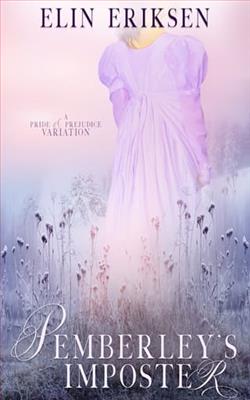Page 3 of The CEO
I like that about her, even though it presents a danger to me and my secret organization, The Shadows. It’s a danger I’ve managed to keep at bay without much issue at all—so far.
Judging by the way she hunts for justice, she and I are more alike than she can possibly understand. The only difference: I’m willing to settle for vengeance when justice just won’t do.
I reach into my pocket, feeling to make sure the photo is secure in the spot it’s stayed in all these years, directly over the tattoo on my chest that bears her name. It’s my own personal brand I’ve carried for years, hidden beneath the suits and armor of my carefully and meticulously crafted persona.
My phone vibrates against my thigh and I pull it free, seeing Foster’s name on the screen.
“Sir, the members have started to arrive at your estate for the meeting.”
“Tell them I’ll be there shortly,” I say before hanging up.
I allow myself one more minute of watching her. She moves slowly along the shoreline, stopping every so often to snap wildflower photos. The wind whips around her—long, dark hair dancing across her face the same way it did all those years ago.
The compulsive urge to react too soon no longer simmers just below the surface like when I was younger. Now, I understand patience and control. I wait until she’s walked around the pond, far enough out of earshot that she won’t hear the engine turn over when I start the car.
I formulate a plan as I make the drive out to my estate. The first thing I need to know is if this is a regular spot for her. If it is, then I won’t worry about how the fly is going to end up in the spider’s trap; I’ll just create the trap myself.
My mentor taught me a lot, and one of the things I’ve mastered, just like him, is the art of manipulation. The first rule: Let your target think they’re acting of their own free will. Create a circumstance so perfect that it will not only lead her right where I want her, but she’ll think it was her idea all along.
I pull out my phone again, sending a quick message to Foster.
Me:Begin daily surveillance on Eve Thorne immediately. Full detail. No interaction at all. Send me the full file we have on her now.
My thoughts are consumed by her the entire drive back to Eden. Thoughts of slowly bringing her into my world, letting her see what kind of justice I can offer her. This time, though, the obsession doesn’t feel dangerous . . . it feels necessary.
When she finally enters my world, I won’t just possess her body. I’ll own her mind, her heart, her very soul. I’ll strip away every defense, every hesitation, every moral boundary until she’s as consumed by me as I am by her.
The things I’ll do to her . . . I’ve spent eight years imagining them in vivid detail.
The way she’ll tremble beneath my touch, the sounds she’ll make when I bring her to the edge of pleasure and pain, how her eyes will look when she finally surrenders completely.
Within six months, Eve Thorne will walk right into my life of her own accord. Only this time, she won’t be getting away.
Chapter1
Eve
PRESENT DAY . . .
There’s a fine line between writing about death and feeling dead inside—a reality I have come to recognize as I hunch over my desk, sanitizing death into no more than 500 characters. Selfishly, sometimes I envy them—the dead, I mean. No longer are they troubled with the difficulties of existing. Meanwhile, my life hangs suspended in a purgatory of unfulfilled dreams.
When I graduated with an English degree, I certainly never imagined it would land me here, writing obituaries, but at least it pays the bills.
Barely.
“Eve, need the obits sent over by end of day,” my editor Brian calls across the open workspace, not bothering to wait for a response from me before ducking back into his office.
I take a sip of now-lukewarm coffee—grimacing at the cold, bitter taste. I contemplate dashing to the break room for another cup, my fourth of the day, but decide against it. Today feels like one of those days where no amount of coffee will spark the inspiration I need to finish this obituary.
Martha Nahum, beloved mother to three children, grandmother of seven, and great-grandmother of four. She passed peacefully on Tuesday, surrounded by her loved ones. She was 92.
The words blur together, generic and bland. That’s what I don’t like about my job: reducing people’s lives down to the same two to three short, formulaic paragraphs, stripped of personality.
I want to speak to the family members, hear the stories about how Martha raised hell in her youth, or the fire that burned in her eyes when she spoke about things that excited her. I want to hear how she slapped a handsy boss back in 1958 but kept her job because she was too valuable to fire.
That’s what I did when my parents died. I made sure I told the world their beautiful love story when they were taken from me. I wanted the world to see how amazing these two people were.
My hands tremble as I type, tears blurring my vision. The blinking cursor seems to mock my grief. I’m nineteen, sitting in the funeral home’s small office, trying to capture my parents in 500 words. How do you distill two vibrant lives into something that fits between the Classifieds and Sports? “James and Lydia Thorne died together, as they lived, side by side.” I delete and rewrite the opening line six times. Nothing feels right.















